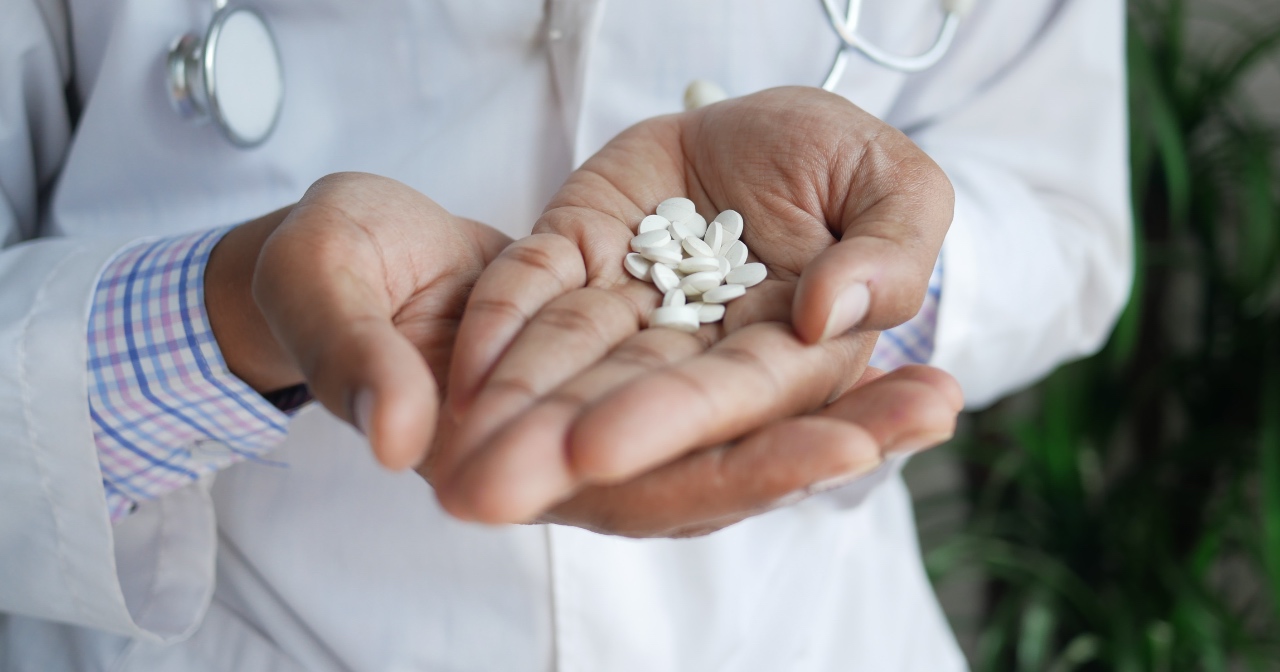For decades, people have taken antibiotics for infections as commonly as they take ibuprofen for headaches. Some integrative health practitioners have waved the caution flag. But, conventional medicine doctors and Big Pharma have tried to quell their caution, like they do today with the practitioners who question the COVID-19 vaccines.
The risks associated with overuse of antibiotics today are undeniable. I was happy to see that even the prestigious journal Nature published a paper titled Unravelling the collateral damage of antibiotics on gut bacteria. Unfortunately, finding fact-based information on the long-term risks of antibiotics, that’s easy to understand, is not a simple thing to do.
In this blog post, I’ve tried to keep the language simple (unless I’m quoting a published paper) and help shed some light onto the possible risks of antibiotic overuse.
I hope this information helps people make better, more informed decisions, especially when it comes to the health of children.
How Antibiotics Work
Antibiotics are one of the most-prescribed types of medicines. Their benefit to human health over the past 70 years is significant, but the negative effects of their overuse also shouldn’t be overlooked, either.
Since they were first discovered, antibiotics have helped people overcome infections, and populations control the spread of disease.
After ingestion, antibiotics make their way to the intestines, where billions of good and bad bacteria reside. To be more accurate, bacteria reside inside and outside our bodies.
When certain bad bacteria multiply, they can cause severe illness. They treat bacterial infections such as:
- Strep throat
- Ear infections
- Whooping cough
- Urinary tract infection (UTI)
- Bacterial pneumonia
To add clarity to their use, antibiotics do not work on viruses. You probably know of people who’ve taken antibiotics as part of a COVID-19 treatment, but the antibiotic is not used for combatting COVID. Rather, it’s used to treat any bacterial infections that occur secondary to the COVID-19 infection.
For that matter, you might end up with an antibiotic prescription for bacterial pneumonia from wearing a useless mask as well, as one of our family members did. The point it, antibiotics are used for treating bacterial infections only.
For the most part, broad-spectrum antibiotics wipe out significant numbers of both bad and good bacteria, not just the pathogenic bacteria.
By wiping out the good bacteria, the antibiotic may weaken certain parts of our immune systems, compromise neurotransmitter production, and lead other health problems I discuss below.
That’s not to say “antibiotics are bad.” That’s a massive exaggeration. But the way they’re so easily prescribed is bad.
Though the medical community has been cautioned to limit their antibiotic prescriptions in children, 25% of all pediatric prescriptions are still antibiotics. Five of the top six medications for children are antibiotics with Amoxicillin and Azithromycin being the top two.
According to a large study of pediatric care, about 30% of antibiotic prescriptions are unnecessary.
On top of that, their overuse leads to antibiotic resistance, where bacteria adapt and learn to overcome the effects of antibiotics, much like the COVID-19 vaccinations aid in the creation of new variants, which are harder to beat with medicine.
It’s becoming more important than ever to use antibiotics conservatively.
The Health Benefits of Your Gut’s Bacteria
Besides antibiotic resistance, antibiotics do significant damage to the good bacteria that help support our health.
To understand why antibiotics can be bad for your health, you first must understand why probiotics, the good bacteria are good for you.
As I explained in Health Benefits of Probiotics: Your Guide, probiotics affect your health in four different ways. They:
- Compete with pathogens for adhesion sites and nutrients. When probiotics outnumber pathogens, there’s a greater chance the pathogens won’t have a place to set up camp and multiply.
- Produce byproducts that improve your health, such as short-chain fatty acids, used by the endothelial cells lining your gut, creating a barrier between your gut and circulation.
- Enhance immune system strength.
- Influence other organs and tissues by producing neurotransmitters.
When you take an antibiotic, killing beneficial bacteria, you limit or eliminate the above health benefits until your gut can get recolonized. During that time, you’re more susceptible to the health risks I cover below.
Risks of Antibiotic Use
While antibiotic resistance is a very real danger for the population as a whole, I’ll focus on the risks for an individual below.
Observational, clinical, and epidemiologic studies focused on young children are providing a growing body of evidence that antibiotic exposure is associated with increased risk for a variety of diseases including obesity, types 1 and 2 diabetes, inflammatory bowel diseases, celiac disease, allergies, and asthma. Experimental models are providing increasing evidence that these associations are not just correlative but are causal.
Blaser MJ
Asthma
Children exposed to antibiotics in their first year of life are more likely to develop asthma as young children, and children exposed to antibiotics as they develop are more likely to develop asthma and allergic rhinitis as they get older.
This relationship suggests that antibiotic insult to the gut microbiota may be additive, such that the more a child is exposed to antibiotics, the greater their likelihood to develop disease in childhood.
Ni J et al.
One possible way antibiotics contribute to asthma is by reducing short-chain fatty acid (SCFA) production. Good bacteria in the gut produce this fatty acid when they consume dietary fiber. In addition to providing fuel for the cells that line the gut and support its integrity, SCFAs add protection to the airway, which may enhance respiratory function.
Interestingly, metformin, used as a diabetes treatment, also impacts gut bacteria and SCFA production.
At the present time, there isn’t an agreed-upon reason antibiotic use correlates with asthma in kids, but the correlation is strong enough to exercise caution with excessive use of them.
Depression, Anxiety, and Other Nervous System Dysfunction
Much of the focus, even in this article, revolves around the digestive and immune systems. However, a growing body of research shows how our gut’s bacteria affect our nervous system as well.
Some bacteria produce neurotransmitters, which may affect mood and mental function in some people. Research shows that supplementation with some probiotics have a small but significant impact on signs of depression and anxiety.
So, if adding probiotics to the gut reduces signs of depression and anxiety, it stands to reason that wiping them out with antibiotics may trigger depression and anxiety.
In addition, autism, attention deficit hyperactivity disorder (ADHD), and multiple sclerosis, which are all nervous system conditions, have some connection to disrupted gut bacteria balance.
Lavender Essential Oil for Anxiety and Depression.
Diarrhea, Nutrient Deficiency, and Immune System Suppression
Broad spectrum antibiotics often cause the condition called Antibiotic-associated diarrhea (AAD). As the antibiotic kills the majority of bad and good bacteria in your gut, you experience diarrhea as a way to quickly rid the body of them.
Aside from the discomfort and inconvenience it causes, it’s also a sign that you’ve severely disrupted the gut flora and reduced the number of good bacteria that protect you from pathogens.
AAD may lead to other infections because your body’s first line of immune defense, your gut bacteria, are no longer there in sufficient numbers to protect you.
In addition, some bacteria may not return as quickly, which disrupts the balance of the bacteria types in your gut.
Research shows that when people take the probiotic strain L. rhamnosus along with their antibiotic regimen, it reduces the occurrence of Antibiotic-associated diarrhea. While taking it would be highly advisable, it’s unlikely that supplementing with that strain alone will be enough to quickly restore the microbiota.
Food Allergy
When the immune system believes a food protein is a pathogen, it sets off an immune response, causing a food allergy.
According to the Mayo Clinic, symptoms include:
- Tingling or itching in the mouth
- Hives, itching or eczema
- Swelling of the lips, face, tongue and throat or other parts of the body
- Wheezing, nasal congestion or trouble breathing
- Abdominal pain, diarrhea, nausea or vomiting
- Dizziness, lightheadedness or fainting
In extreme cases, it may lead to anaphylaxis.
We develop food allergies when food particles enter the bloodstream, where they should never be. The only way they get there is if the barrier between the digestive system and the bloodstream breaks down.
How does the barrier break down? By robbing your endothelial cells of short-chain fatty acids when you wipe out certain probiotics. You also weaken the gut lining through inflammation, which can be triggered when you lack certain good gut bacteria.
The food particles enter the bloodstream and the immune system attacks them. Then, the next time you eat the same food, your immune system sees it as a potential threat, even if the food particles don’t pass from the digestive system into the bloodstream.
Celiac disease is a food allergy triggered by gluten, but many others occur in children and young adults today. Irritable bowel syndrome occurs from chronic inflammation in the gut, which could share a similar root cause as food allergies.
Children who received an antibiotic prescription in their first 12 months were more likely to be diagnosed with food allergy. The more courses a child received, the greater the risk of food allergy.
Isaacs D, Wong M.
Overweight and Obesity
Livestock farmers have used antibiotics for decades as a way to increase animals’ growth rates.
It seems that antibiotic use in developing humans has a similar effect. Good bacteria in the gut support a healthy body weight by:
- Stimulating production of appetite suppressing hormones
- Supporting normal blood sugar and insulin production
- Maintaining healthy inflammation levels
- Regulating energy absorption from the diet
When antibiotics wipe out probiotics, they create dysfunction in these weight-regulating systems. Males seem more susceptible than females.
Regardless of birth weight, maternal overweight and other potential confounders, male infants receiving antibiotics were more than five times as likely to become overweight by age 12, compared with males who were unexposed.
Azad MB, et al.
Should you take antibiotics?
Only a fool would say to never take an antibiotic, but it’s also foolish to use one every time you have a mild infection. Your immune system can do a lot to protect you on its own, and as the research shows, almost 1/3 of the time in kids, a doctor prescribes an antibiotic unnecessarily.
If you do take them, it’s important to take probiotics to help repopulate the gut with good bacteria. However, probiotic research is at its infancy, so it’s unlikely you’ll be able to replace all of the good bacteria strains you lose by taking a couple of probiotic supplements.
Hopefully in time, doctors will become more cautious in prescribing antibiotics, and use them only when absolutely necessary. It might mean we remain ill a little longer, but if your body can beat an infection on its own, it’s almost always better than than using a medication.

Feel Better Fast. Guaranteed.
Energy+, EDGE, and MentaBiotics make up the Happy Juice supplement stack, with ingredients clinically proven to:
- decrease anxiousness scores by 55%
- decrease irritability scores by 60%
- decrease fatigue by 64%
- decrease anger 54%
- decrease tension by 45%
- decrease confusion by 43%
- decrease overall distress by 49%
- increase good bacteria by 70%
- decrease negative mood by 105%
- increase positive mood by 211%
References
Agamennone, Valeria, et al. “A Practical Guide for Probiotics Applied to the Case of Antibiotic-Associated Diarrhea in The Netherlands.” BMC Gastroenterology, vol. 18, Aug. 2018, p. 103. PubMed Central, https://doi.org/10.1186/s12876-018-0831-x.
Antibiotic Resistance – ScienceDirect. https://www.sciencedirect.com/science/article/pii/S1876034116301277?via%3Dihub. Accessed 20 Oct. 2021.
Arrieta, Marie-Claire, et al. “Early Infancy Microbial and Metabolic Alterations Affect Risk of Childhood Asthma.” Science Translational Medicine, vol. 7, no. 307, American Association for the Advancement of Science, Sept. 2015, pp. 307ra152-307ra152. science.org (Atypon), https://doi.org/10.1126/scitranslmed.aab2271.
Azad, M. B., et al. “Infant Antibiotic Exposure and the Development of Childhood Overweight and Central Adiposity.” International Journal of Obesity, vol. 38, no. 10, Oct. 2014, pp. 1290–98. www.nature.com, https://doi.org/10.1038/ijo.2014.119.
Chai, Grace, et al. “Trends of Outpatient Prescription Drug Utilization in US Children, 2002-2010.” Pediatrics, vol. 130, no. 1, July 2012, pp. 23–31. PubMed, https://doi.org/10.1542/peds.2011-2879.
“Food Allergy – Symptoms and Causes.” Mayo Clinic, https://www.mayoclinic.org/diseases-conditions/food-allergy/symptoms-causes/syc-20355095. Accessed 20 Oct. 2021.
Hersh, Adam L., et al. “Antibiotic Prescribing in Ambulatory Pediatrics in the United States.” Pediatrics, vol. 128, no. 6, Dec. 2011, pp. 1053–61. PubMed, https://doi.org/10.1542/peds.2011-1337.
Isaacs, David, and Melanie Wong. “Antibiotics and Food Allergy.” Journal of Paediatrics and Child Health, vol. 53, no. 1, 2017, pp. 91–91. Wiley Online Library, https://doi.org/10.1111/jpc.13439.
Kronman, Matthew P., et al. “Bacterial Prevalence and Antimicrobial Prescribing Trends for Acute Respiratory Tract Infections.” Pediatrics, vol. 134, no. 4, Oct. 2014, pp. e956-965. PubMed, https://doi.org/10.1542/peds.2014-0605.
Liu, Richard T., et al. “Prebiotics and Probiotics for Depression and Anxiety: A Systematic Review and Meta-Analysis of Controlled Clinical Trials.” Neuroscience and Biobehavioral Reviews, vol. 102, July 2019, pp. 13–23. PubMed Central, https://doi.org/10.1016/j.neubiorev.2019.03.023.
Ni, Jeffrey, et al. “Early Antibiotic Exposure and Development of Asthma and Allergic Rhinitis in Childhood.” BMC Pediatrics, vol. 19, July 2019, p. 225. PubMed Central, https://doi.org/10.1186/s12887-019-1594-4.
Petra, Anastasia I., et al. “Gut-Microbiota-Brain Axis and Effect on Neuropsychiatric Disorders with Suspected Immune Dysregulation.” Clinical Therapeutics, vol. 37, no. 5, May 2015, pp. 984–95. PubMed Central, https://doi.org/10.1016/j.clinthera.2015.04.002.
Prebiotics and Probiotics for Depression and Anxiety: A Systematic Review and Meta-Analysis of Controlled Clinical Trials. https://www.ncbi.nlm.nih.gov/pmc/articles/PMC6584030/. Accessed 20 Oct. 2021.
Szajewska, Hania, et al. “Probiotics for the Prevention of Antibiotic-Associated Diarrhea in Children.” Journal of Pediatric Gastroenterology and Nutrition, vol. 62, no. 3, Mar. 2016, pp. 495–506. PubMed, https://doi.org/10.1097/MPG.0000000000001081.
Photo by Towfiqu barbhuiya on Unsplash



